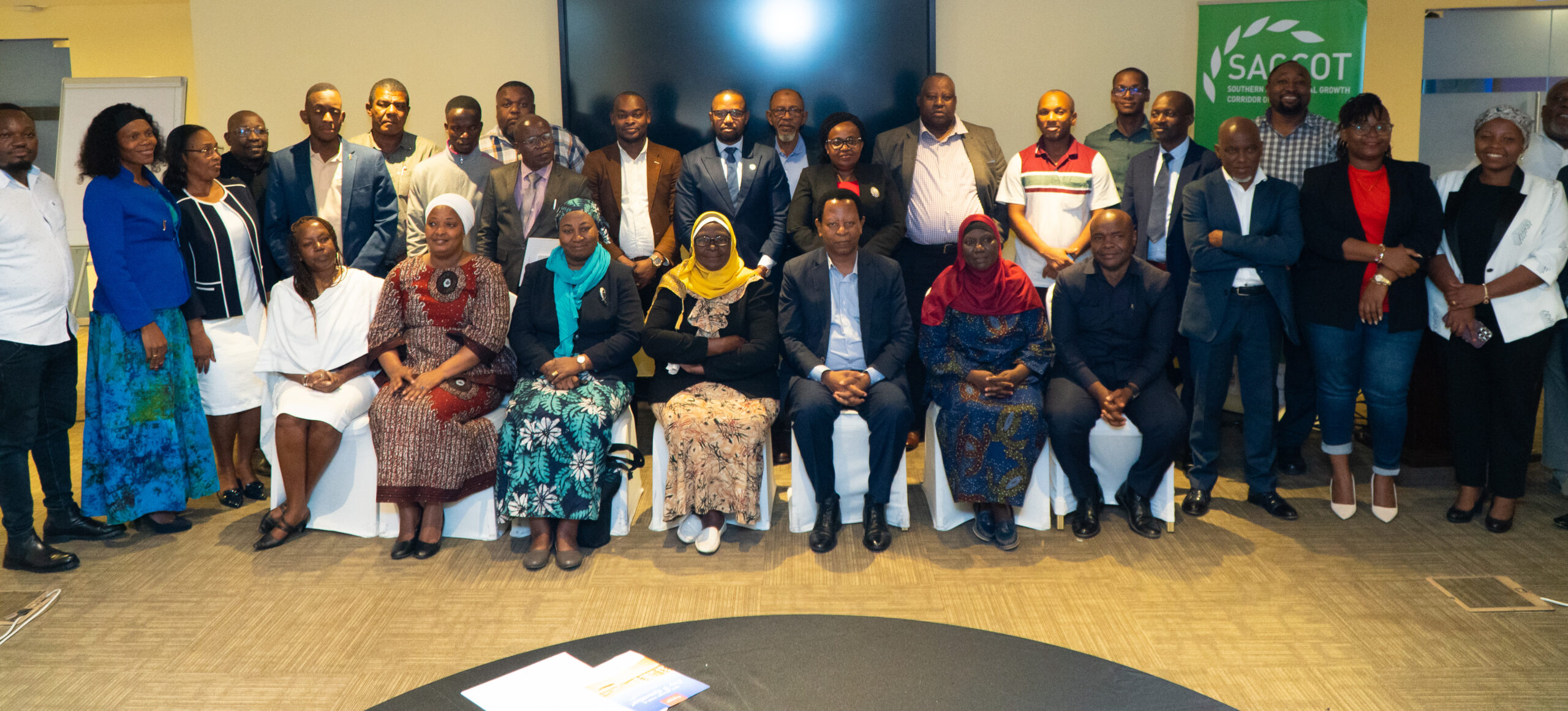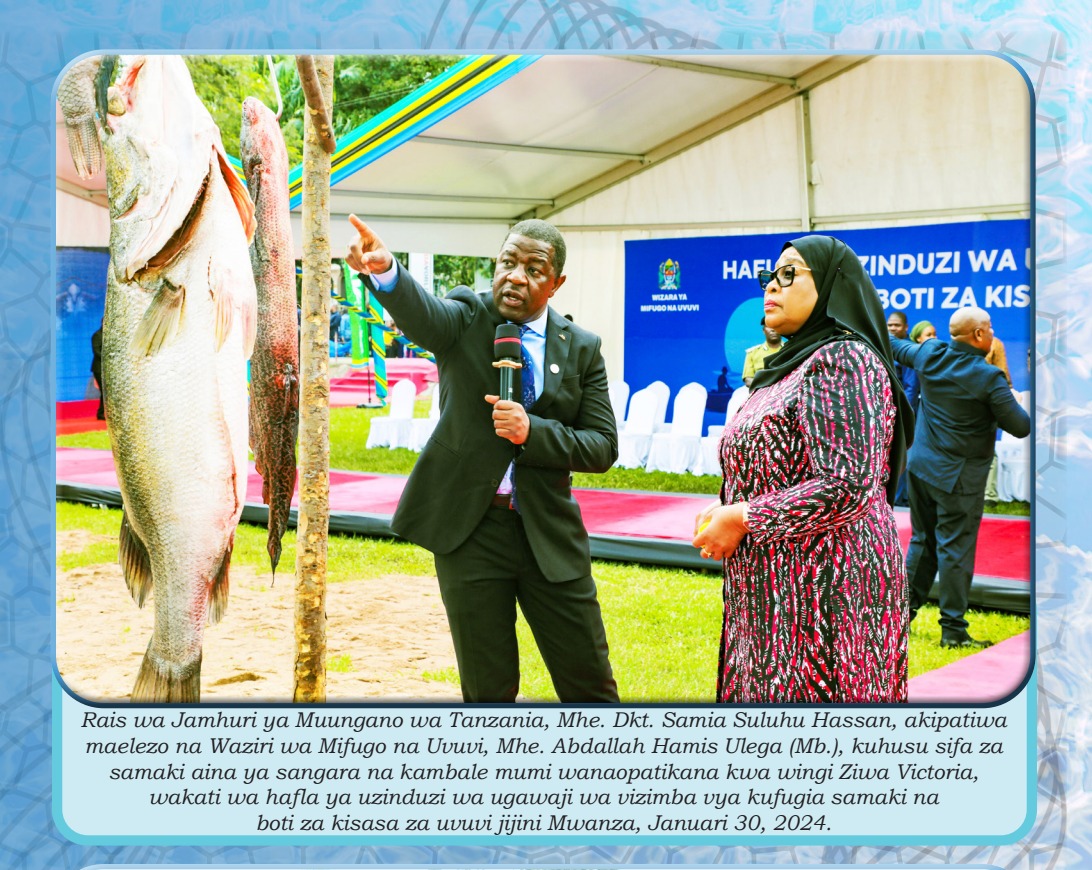Tanzania Unlocking Agricultural Potential With Soil Testing To Boost Productivity
In a visionary endeavour to rejuvenate agricultural productivity and tackle dwindling yields, the Southern Agricultural Growth Corridor of Tanzania (SAGCOT) is championing the significance of soil testing, urging farmers to prioritize soil health as the key to enhanced efficiency and profitability.
Speaking exclusively to Kilimokwanza.org, Mr Geoffrey Kirenga, the CEO of SAGCOT, passionately stressed the need for comprehensive soil testing to unlock the full potential of Tanzania’s agricultural sector. Despite farmers embracing high-quality seeds and fertilizers, a profound lack of knowledge in soil management has impeded optimal crop growth and production.
“While our farmers have enthusiastically embraced the utilization of superior seeds and fertilizers, the missing link lies in their understanding of essential soil management techniques,” articulated Kirenga. “Assessing soil health is crucial in realizing the transformative impact necessary to uplift farmers from poverty through increased yields.”
Kirenga’s dedication to agricultural transformation is fueled by his deep-rooted belief that the agricultural sector is key to unlocking Tanzania’s economic potential. He envisions a future where farmers are equipped with the knowledge and resources needed to harness the power of the land, driving sustainable growth and prosperity in the region.
SAGCOT has consistently been at the forefront of promoting agricultural advancements, bringing together a wide array of stakeholders, including traders, institutions, and regulatory bodies. The organization is fervently committed to streamlining the sector by enforcing pertinent laws and regulations while fostering collaborations that drive agricultural development.
“We understand the importance of collaboration and synergy in propelling the agricultural sector forward,” remarked Kirenga. “By uniting farmers, experts, and policymakers, we can collectively address the challenges and unlock the vast potential of Tanzania’s agricultural landscape.”
Kirenga emphasized that soil testing is indispensable for driving positive changes within Tanzania’s agricultural landscape. The Southern Highlands region, blessed with a favorable climate and fertile soil, is responsible for approximately 60-65% of the nation’s food production. Recognizing its immense potential, SAGCOT has forged strategic partnerships with industry experts and spearheaded the introduction of cutting-edge technologies to catalyze agricultural transformation.
“Despite our bountiful resources, the knowledge gaps impede our desired outcomes. Education alone is insufficient without the practical know-how,” added Kirenga.
To bridge the gap, SAGCOT has implemented comprehensive training programs to empower farmers with the knowledge and skills needed to optimize soil health. By working closely with local communities, the organization seeks to instil sustainable farming practices that enhance productivity and protect the environment for future generations.
The average crop yield in the Southern Highlands ranges from 1.3 to 3 metric tons per hectare. However, by adhering to best agricultural practices, including meticulous soil health management, farmers can achieve yields of up to 13 metric tons per hectare.
The transformative impact of soil testing and soil health management is evident in success stories from farmers who have embraced these practices. Mr. Emmanuel Mwakyambiki, a progressive farmer from Mbeya, attests to the positive changes he experienced after adopting soil testing techniques.
“Before, my yields were inconsistent, and I struggled to make ends meet. However, after implementing soil testing and managing my soil health, I witnessed a remarkable increase in productivity. This has brought stability to my livelihood and improved the well-being of my family,” shared Mwakyambiki.
Recognizing the challenges acid soils pose, SAGCOT partnered with the Guiding Acid Soil Management Investments in Africa (GAIA) project to leverage their technical expertise and support. Together, they are addressing the specific issues related to acid soils management in the region, reinforcing SAGCOT’s position as a sustainable and productive agricultural corridor in Tanzania.
One of the key activities undertaken by SAGCOT and GAIA is the identification of areas within the Southern Agricultural Growth Corridor that are affected by acid soils. Farmers and stakeholders can better understand and address the specific challenges associated with acid soils by pinpointing these regions.
Building upon this identification process, SAGCOT and GAIA are jointly developing a comprehensive plan to manage acid soils in the region. This plan encompasses a range of strategies and techniques tailored to the unique characteristics of acid soils, aiming to mitigate their adverse effects on crop growth and productivity.
Recognizing the importance of knowledge dissemination, SAGCOT and GAIA are actively engaged in training farmers on acid soils management practices. Through workshops, field demonstrations, and farmer-to-farmer exchanges, these initiatives equip farmers with the tools to effectively manage acid soils, improving crop yields and long-term sustainability.
Moreover, SAGCOT and GAIA are working hand in hand to disseminate vital information on acid soils management to farmers and other stakeholders. This includes developing educational materials, such as brochures and manuals, and establishing communication channels to facilitate the sharing of best practices and scientific research.
The collaboration between SAGCOT and GAIA is a testament to the power of partnerships in driving positive change in the agricultural sector. By combining their expertise and resources, these initiatives are expected to benefit farmers in Tanzania, fostering sustainable agriculture and improving livelihoods.
The transformative potential of this collaboration extends beyond individual farmers. By enhancing soil health and increasing agricultural productivity, the Southern Agricultural Growth Corridor has the opportunity to contribute significantly to food security and economic growth in Tanzania. With SAGCOT leading the way and GAIA providing invaluable support, the vision of a vibrant and prosperous agricultural sector is becoming a reality.
“We are dedicated to the long-term success of our farmers and the agricultural sector as a whole,” declared Kirenga. “Through collective efforts and a commitment to continuous improvement, we can unlock the true potential of Tanzania’s Southern Highlands, making it a shining example of agricultural excellence.”


